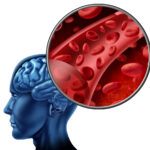Why do I have low hormone symptoms when my MD says my levels are normal?
I consult with many women and men who are convinced that they are having hormone issues but their MD tells them that their sex hormone levels are normal.
The men report symptoms of low testosterone such as:
- fatigue
- lack of motivation
- poor recover after exercise
- low sex drive
- poor erection quality
- emotional instability
- increased belly fat
- development of “man boobs”
- infertility
- and more…
The women report symptoms of such as:
- hot flashes
- weight gain
- night sweats
- heavy menses
- painful menses
- irregular cycles
- no cycle
- infertility
- anxiety and/or depression
- fatigue
- breast tenderness
- pelvic pain
- mood instability
- and more…
Could your MD be correct? Could you have a number of these symptoms and truly have normal sex hormone levels?
Believe it or not, the answer is “YES”.
HOW?!
The answer lies in understanding hormone physiology and hormone testing.
Hormone Physiology Primer
All hormones, including sex hormones, must bind a receptor on or inside cells to have their effect. Just imagine the hormone as the key and the cell receptor as the lock.
Without the hormone key to fit the receptor lock, hormone effects don’t occur and you may have various symptoms listed above.
You must have optimal levels of keys (hormone) AND optimal levels of locks (receptors) AND optimal fitting (binding) of keys into locks to have optimal hormone health.
Hormone Testing Primer
Testing only reveals hormone levels. We can test sex hormones in the blood, urine, and/or saliva.
THERE IS CURRENLY NO DIRECT TEST OF HORMONE RECEPTOR FUNCTION.
Did you catch that? We cannot test whether the androgen receptor is optimally binding testosterone, or the estrogen receptors are optimally binding estrogen, or the progesterone receptor is optimally binding progesterone.
This is why you can experience a scenario where your MD is (correctly) telling your that your hormone levels are optimal but you are still experiencing “Low T” or infertility or hot flashes, etc.
Normal hormone levels are just HALF THE EQUATION. The other half is normal functioning receptors.
What causes our “locks” not to work?
“If I have normal hormone levels, what could be going on to be jamming my locks (receptors)?”
Good question.
Unfortunately, there are MANY things in our environment that can cause receptor dysfunction.
Here are a few common causes:
- systemic inflammation from poor diet, physical inactivity, sleep issues, autoimmunity, etc
- poor antioxidant levels and/or high levels of oxidative stress
- endocrine disrupting chemicals (EDCs) such as BPA, glyphosate, heavy metals, pthalates, etc.
- genetic variants in receptor genes
- altered genetic expression (epigenetics)
Long-term exposure to any or all of these contributing factors is widely thought to play an important role in many chronic conditions by modulating both hormone actions and hormone receptor activity.
So what do we do about it?
Fortunately, there are ways to “detox” your receptors in order to promote optimal “lock and key” function and resultant optimal hormone physiology.
First of all, you want to decrease your total load of EDCs. You do this by decreasing the total number of chemicals you put in and on your body daily, ideally down to zero. In previous videos I have discussed how the average female in the US uses 12 toxic health and beauty aids (toothpaste, make up, hair products, soap, etc) per day, and the average man uses six. The closer to zero you can make that number, the greater you are decreasing your daily exposure to EDCs and their promotion of receptor dysfunction.
Second, you want to increase your antioxidant status. Your body’s master antioxidant is glutathione. Many people are deficient in glutathione. In fact, one study found that 40% of people have a genetic makeup that makes them poor glutathione producers. This promotes faster accumulation of EDCs and poor receptor function.
Lastly, you must detoxify your receptors to promote optimal receptor (lock) function. Detoxifying your locks allows your normal levels of keys to benefit you.
There is now a product that does just that. It is called Receptor Detox and it was formulated by Dr. Lindsey Berkson. She is a hormone expert that worked at Tulane University and was part of the team that discovered the first two estrogen receptors (estrogen receptor alpha, estrogen receptor beta).
Start healing today!
You can get Receptor Detox now at my office.





